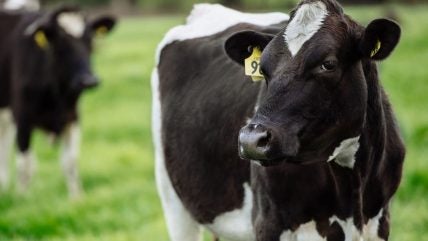
Financing allocated to tackle climate change in the agri-food system has “plummeted” in recent years, a United Nations’ report claims.
As the COP28 summit draws to a close in Dubai, the Food and Agriculture Organization of the United Nations (FAO) warns that Asia is the worst hit in terms of the drop in funds to support efforts to cap global warming. The decline is a “missed opportunity”, according to the FAO’s deputy director-general Maria Helena Semedo.

Discover B2B Marketing That Performs
Combine business intelligence and editorial excellence to reach engaged professionals across 36 leading media platforms.
The UN body’s report suggests the amount of financing channelled into the agri-food sector for climate purposes is “strikingly low and continues to diminish compared to global climate finance flows”.
Between 2000 and 2021, agri-food funds for climate-related development stood at $183bn but in 2021 the amount had dropped to $19bn, a 12% decrease from 2020, the FAO said.
Asia saw a 44% drop, while financing for Africa and Europe only rose by a “mild” 4%, it added. In Latin America and the Caribbean, agri-food climate funding increased by a “modest” 6%.
The FAO report covers local, national and “transnational financing” garnered from the public and private sectors, and other “alternative” sources, geared to “support mitigation and adaptation actions to address climate change”.

US Tariffs are shifting - will you react or anticipate?
Don’t let policy changes catch you off guard. Stay proactive with real-time data and expert analysis.
By GlobalDataIt explained: “Although there has been an overall global increasing trend in absolute terms since 2000, doubling from $9bn allocated in 2010 to $19bn in 2021, the growth rate of climate-related development finance towards agri-food systems falls significantly short of the average growth rate of three to four times observed in climate-related development finance overall.”
The decline in funding is starving governments of essential cash to cut greenhouse gas emissions and in providing a buffer to food security and protecting biodiversity, the FAO claimed.
Semedo said: “The unique potential of agri-food systems to tackle the climate crisis can only be realised by scaling up investments in agri-food systems solutions and actions.
“The diminishing trends of both agri-food and adaptation investments is a missed opportunity to equip farmers around the world with the knowledge, the much-needed technologies and innovation to enhance their resilience and adapt to climate change impacts.”
Citing a study by the US-based non-profit organisation Climate Policy Initiative, the FAO added that between 2019 and 2020 only 4% of global climate finance went to agri-food systems. And to meet sustainability goals, each country needs more than $680bn a year until 2030, it said.
COP28 closes tomorrow (12 December) with a number of initiatives pertaining to food emerging from the summit so far.
A key development was six of the world’s largest food companies signing up to the Dairy Methane Alliance to disclose annual emissions. Nestlé, Danone, General Mills, Kraft Heinz, Bel Group and Lactalis were the signatories.
On day one of the conference, world leaders also agreed to a Loss and Damage Fund to support the poorest and most vulnerable countries cope with climate-related impacts, kicking off with around a $400m contribution.
And more than 130 countries have signed up to the Leaders Declaration on Food Systems, Agriculture and Climate Action pact with a commitment to cut carbon emissions in the global food system.





